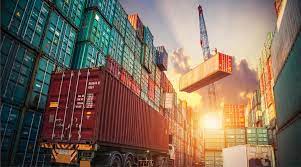In an increasingly interconnected world, the movement of goods across borders has become the backbone of global commerce. The efficient transportation of these goods, commonly known as freight logistics, is a critical component of supply chain management. As industries expand and markets become more competitive, the demand for innovative logistical freight solutions has never been greater. This article delves into the evolving landscape of logistical freight solutions, exploring how technological advancements, sustainability concerns, and changing consumer expectations are shaping the way goods are transported and delivered worldwide.
The Changing Face of Logistics
Traditionally, freight logistics focused on basic transportation and warehousing services. However, the advent of technology has brought about a transformative shift in this field. Modern logistical freight solutions are far more complex, integrating various elements such as route optimization, real-time tracking, demand forecasting, and risk management. This shift has been driven by the increasing demand for efficiency, cost-effectiveness, and transparency in the supply chain.
Technological Advancements
-
IoT and Real-Time Tracking: The Internet of Things (IoT) has revolutionized logistics by enabling real-time tracking of shipments. Sensors and GPS devices attached to cargo provide valuable data on location, temperature, humidity, and other conditions. This not only enhances transparency but also allows for timely interventions in case of disruptions.
-
Big Data and Analytics: The vast amount of data generated throughout the supply chain can be harnessed to make informed decisions. Advanced analytics can predict demand patterns, optimize routes, and minimize delays. This data-driven approach enhances operational efficiency and reduces wastage.
-
Blockchain Technology: Blockchain ensures secure and transparent transactions across the supply chain. Its decentralized nature prevents fraud and enhances traceability. Smart contracts enable automatic execution of terms, reducing paperwork and administrative burdens.
Sustainability and Green Initiatives
The environmental impact of freight logistics cannot be ignored. The industry is under pressure to adopt sustainable practices and reduce its carbon footprint.
-
Eco-Friendly Transportation: Electric and hybrid vehicles, as well as alternative fuels, are gaining traction in the freight industry. These innovations significantly reduce greenhouse gas emissions and dependence on fossil fuels.
-
Efficient Route Planning: Advanced route optimization minimizes fuel consumption and emissions by reducing unnecessary mileage. This not only saves costs but also contributes to sustainability goals.
-
Multimodal Transportation: Combining different modes of transport (road, rail, air, sea) optimizes efficiency while lowering emissions. Intermodal hubs streamline the transfer of goods between different modes, reducing handling and transit times.
Customer-Centric Approaches
Today's consumers expect seamless shopping experiences, including efficient delivery options. This has driven the development of customer-centric freight solutions.
-
Last-Mile Delivery Innovation: The final leg of delivery, often the most challenging, is witnessing innovation. Drones, autonomous vehicles, and even robots are being tested to ensure swift and accurate last-mile delivery.
-
Personalized Services: Advanced data analytics allow companies to understand individual customer preferences and tailor their logistics services accordingly. This level of personalization enhances customer satisfaction and loyalty.
-
Visibility and Communication: Transparent communication regarding shipment status and delivery times is crucial. Modern logistical solutions provide customers with real-time updates, enhancing their overall experience.
Challenges and Future Outlook
While houston logistics company have come a long way, challenges remain. Cybersecurity threats, regulatory complexities, and the need for skilled professionals in data analytics and technology management are ongoing concerns. However, as technology continues to evolve, these challenges are likely to be met with equally innovative solutions.
Logistical freight solutions have transcended their traditional roles, becoming a cornerstone of efficient supply chain management. Technological advancements, sustainability imperatives, and changing consumer expectations are reshaping the way goods are transported and delivered globally. As industries continue to expand and global trade intensifies, the ongoing development of these solutions will be pivotal in meeting the demands of the modern age while minimizing the impact on the environment.


No comments yet